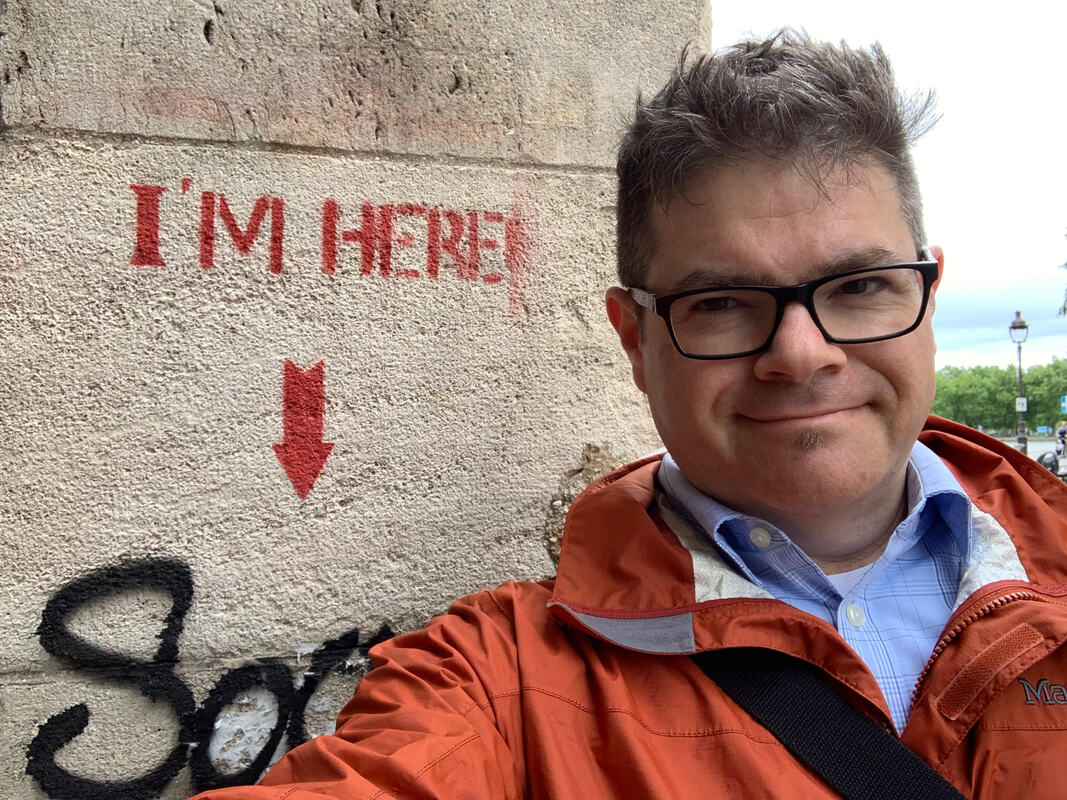Ecohydrology is reciprocal – it captures how hydrology structures and drives ecological pattern and process, but also how organisms and their interactions influence hydrologic dynamics.
What are your undergraduate and graduate degrees in?
I have a B.A. in Environmental Studies from Binghamton University, an M.S. in Plant and Soil Sciences from University of Tennessee, and a Ph.D. in Ecology from the Oduym School of Ecology at the University of Georgia.
How did you arrive at working in/thinking about ecohydrology?
Although I was working in urban riparian ecosystems and soil ecology for my PhD research, I didn’t really start thinking about or working in ecohydrology in a formal way until I moved to Tucson, AZ and started working with Travis Huxman. It was eye-opening moving from a more biogeochemical group to one that focused on physiological ecology. We would spend a lot of time waiting for rain, chasing storms, and adding our own water pulses to desert ecosystems. As an ecologist, deserts drive home the importance of water for everything we think about as ecologists – community structure, spatial distributions, species interactions, ecosystem processes. Thinking about those pulses in cities and connecting with a practitioner of urban permaculture started me working on green infrastructure as a way to reconnect ecohydrologic flows and processes in cities. Simple shifts in how and where water moves by manipulating soil, plants, and concrete has big impacts for ecology, ecosystem services, and people in desert cities. I’ve brought that urban ecohydrology focus with me to the mid-Atlantic where we’re exploring how green infrastructure influences ecohydrological fluxes and how that impacts water flows and water quality.
What do you see as an important emerging area of ecohydrology?
So many of us seem to be drawn to understanding urban ecohydrology, but I think within that an important emerging area really gets down to understanding the role of people in ecohydrology. Be it socio-ecohydrology, socio-hydrology, whatever we want to call it, figuring out reciprocal influences between the two is going to be key to transitioning to more sustainable and resilient water systems. The frontier is really in the human side of that, getting past metrics, indices, and accounting to understanding how decisions get made – what information is (and isn’t) used, how worldviews are shaped, how institutions function as things, but also as collections of people. This really is going to require partnerships and collaboration – stepping out of how we much approach a problem from our (already interdisciplinary) ecohydrology view and listen to those who come from other ways of seeing these urban systems. This includes both people who study how decisions are made (by people, by organizations) but perhaps more importantly, working in partnership with the people and groups making decisions that affect ecohydrology.
Do you have a favorite ecohydrology paper? Describe/explain.
Picking a favorite is always hard! There were a lot of classic desert soil ecology papers from people like Diana Wall (like, Wall, D. H., and R. A. Virginia. 1999. Controls on soil biodiversity: insights from extreme environments. Appl. Soil Ecol, 13:127-150) and Walt Whitford (Whitford WG (1989) Abiotic controls on the functional structure of soil food webs. Biology and Fertility of Soils 8:1-6) that really drove home the connections between patterns of water availability and the dynamics of soil food webs- that’s really where I got my start in ecohydrology. Tardigrades get a lot press, but anhydrobiosis in nematodes is where it’s at! More recently as I think about water in the context of decision making and urban social-ecological systems, I really like this paper by Claudia Pahl-Wostl (Pahl-Wostl, Claudia. 2007. Transitions towards adaptive management of water facing climate and global change. Journal Water Resources Management 21(1): 49-62.). This paper was one of the first I encountered that got me thinking deeply about the role of people in managing water within that coupled social-ecological context. It was grounded in familiar territories of complex adaptive systems and adaptive management, but introduced me to new ways of thinking about social learning and system transformation.
What do you do for fun (apart from ecohydrology)?
I love to spend time with my family – getting to explore the area we’ve recently moved to brings lots of new places to visit, be it stomping in the neighborhood stream to finding hidden treasures at the Smithsonian downtown. Music is also so much fun – finding new things to listen to, seeing live music, or even getting a rare chance to lend my tenor voice to a local ensemble, all great ways for me to relax and have fun.

 RSS Feed
RSS Feed